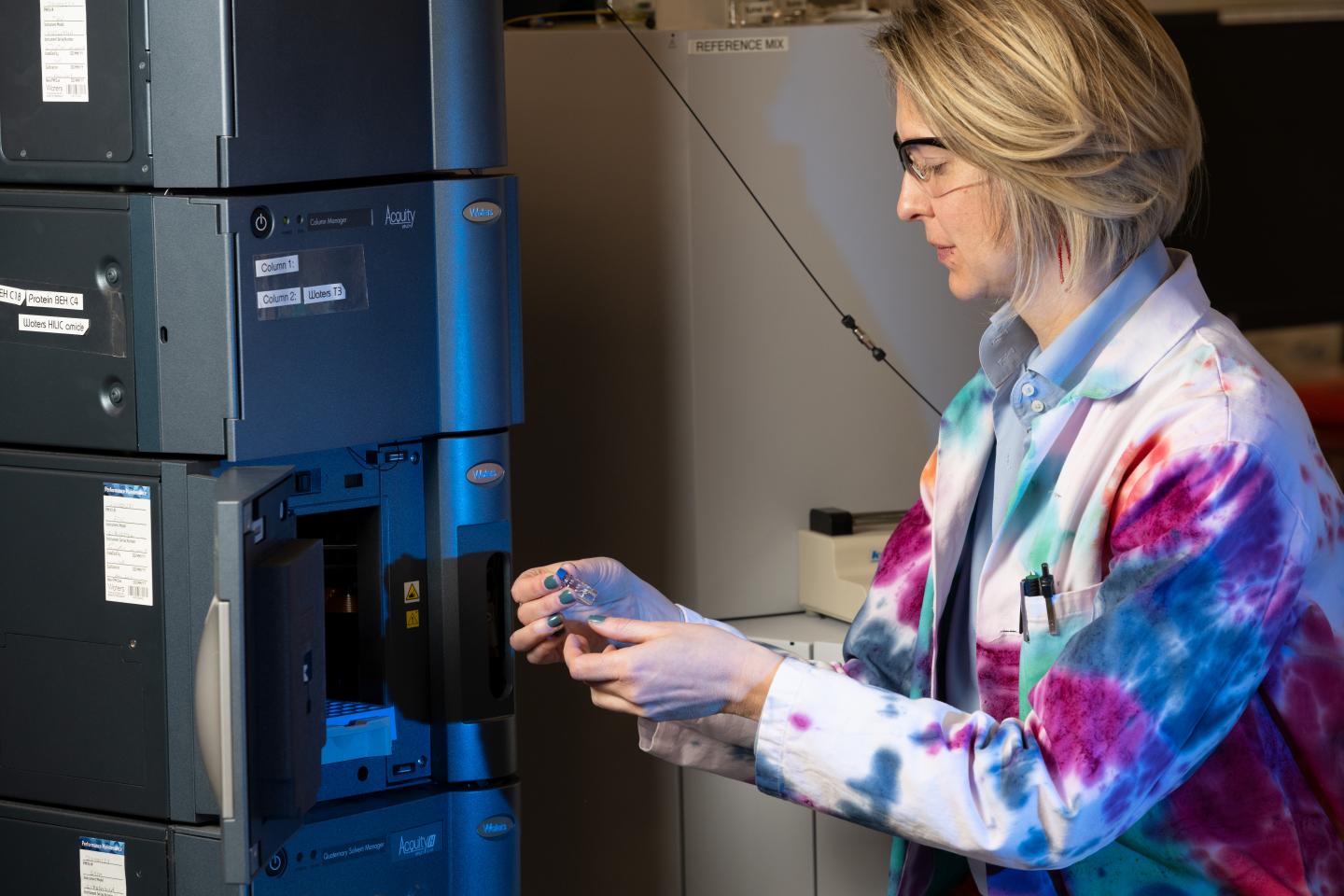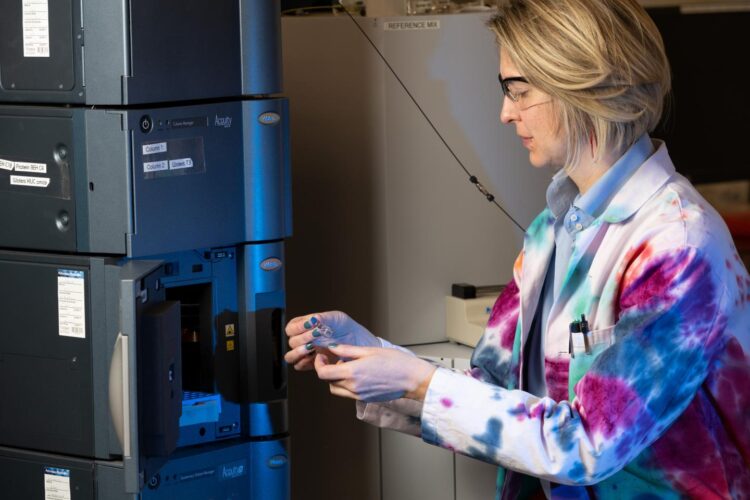
Credit: John Eisele/CSU Photography
A multidisciplinary team including an analytical chemist, an ecosystem scientist and two microbiologists at Colorado State University have received a $1 million award from the W.M. Keck Foundation to study rare sugars found in soil.
The team aims to explore principles of science on the shape of chemical compounds and microbial fermentation dating back to the 1800s. Depending on what they find, the research could lead to breakthroughs in disease research or new developments in the food and beverage industry.
The scientists include Assistant Research Professor Claudia Boot in the Department of Chemistry, Professor Rich Conant in the Department of Ecosystem Science and Sustainability, Research Scientist James Henriksen in the Department of Chemical and Biological Engineering, and Peter Baas, soil microbiologist at Corteva Agriscience and former scientist with the Natural Resource Ecology Laboratory at CSU.
They will study some of the world’s most important biochemicals – sugars, including carbohydrates – which are chiral, meaning that they come in one of two possible shapes that are mirror images of each other. One shape can be extremely abundant, like the simple sugar D-glucose, while its mirror image, L-glucose, is thought to be extremely rare or non-existent in nature.
Challenging historical biochemical principles
The idea that the shape of an organic molecule determines whether it is biologically active or not has been an organizing principle of biochemistry dating to Louis Pasteur’s work 200 years ago and has largely been a closed book ever since, according to Conant, also an associate dean in the Warner College of Natural Resources.
“This ‘shadow’ biochemical economy has never been observed before,” added Boot. “The use of these rare forms of sugar by microorganisms is fundamentally different than what we thought. It’s a different way of understanding metabolism and how energy flows through organisms.”
A handful of recent research studies have found L-glucose in nature. After considering the anomalies, the CSU team screened soil samples gathered from locations from across the main campus in Fort Collins. To their surprise, every sample contained bacteria capable of consuming L-glucose.
Henriksen said the award provides the team with the opportunity to pursue a new understanding of the natural world.
“This grant will allow us to discover something very important that’s occurring all around us but that we don’t know very much about,” he said. “We will look for these exceptions to the rule – alternative chemistries that life uses that could really illuminate a better understanding of the environment and how we synthesize and use chemicals and compounds.”
Research explores vital questions about microbes
Henriksen described how technology to read an organism’s DNA and to detect biochemical reactions has led to new discoveries on the importance of microbial life.
“We are currently in a revolution of understanding the natural world,” he said. “And a very central part of it, our own nutrition and mental health, is modulated by the biochemistry of microbes that live on and around us.”
Henriksen said that half of the oxygen we breathe at any given moment stems from microbes.
“We have the tools to start to understand these biochemical processes and many of them are based on DNA sequencing, so we read the ‘recipe’ for organisms, which are shaped by their history and the environment,” he said.
Boot, also a research scientist with the Materials and Molecular Analysis Center – a CSU core facility under the Office of the Vice President for Research – said the team will use stable isotope-labeled versions of these rare sugar molecules. They will track individual carbon atoms using mass spectrometry and nuclear magnetic resonance spectroscopy, which is similar to MRI or Magnetic Resonance Imaging.
“We will really be able to dig into, at the atomic level, what happens to these molecules when used by individual organisms and also groups of microbes,” she said.
Research collective
Part of the award will also support the W.M. Keck Foundation Environmental Genomics Laboratory and Metabolism Collective at CSU. Boot said that the collective will serve as a working group with other researchers on campus as well as off-campus experts interested in microbial metabolism.
“We plan to engage with researchers across colleges and departments to educate ourselves and others about what we’re finding along the way,” she said. “It’s exciting, being able to expand and share what we’re learning and think about how it applies to ecosystem science, biogeochemistry and other disciplines.”
Henriksen said the structure of the team, with researchers from different scientific backgrounds truly working together in a very collaborative way, is energizing.
“Reality doesn’t obey boundaries of disciplines, especially when you’re doing something new,” he said. “With our land-grant heritage, excellent research and recent expansion of microbiome studies at CSU, this is the right place to be attempting this novel research.”
###
Keck Foundation support at CSU
The Keck Foundation has provided eight grants to CSU scientists in the last 20 years. Most recently, Professor Kristen Buchanan received $1 million to make and measure nanoscale spin waves.
Based in Los Angeles, the W. M. Keck Foundation was established in 1954 by the late W. M. Keck, founder of the Superior Oil Company. The Foundation’s grant making is focused primarily on pioneering efforts in the areas of medical research and science and engineering. The Foundation also maintains a Southern California Grant Program that provides support for the Los Angeles community, with a special emphasis on children and youth. For more information, please visit http://www.
Media Contact
Mary Guiden
[email protected]
Original Source
https:/





